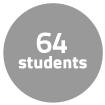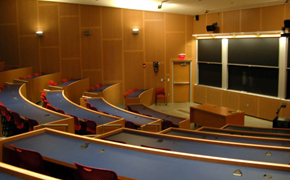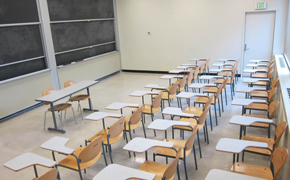This Course at MIT pages are part of the OCW Educator initiative, which seeks to enhance the value of OCW for educators.
This Course at MIT pages provide context for how the course materials published on OCW were used at MIT. They are part of the OCW Educator initiative, which seeks to enhance the value of OCW for educators.
Course Overview
This page focuses on the course 7.91J Foundations of Computational and Systems Biology as it was taught by Profs. Christopher Burge, David Gifford, and Ernest Fraenkel in Spring 2014.
This course is an advanced undergraduate/graduate survey course in computational biology.
- It is not a systems biology course, but topics important for analyzing complex systems will be presented.
- It is not a synthetic biology course, but there is a guest lecture by George Church related to synthetic biology.
- It is not an algorithms course; expertise in designing and analyzing algorithms is not assumed. The essential ideas behind a variety of algorithms will be discussed, but details of implementation are not addressed. Students will have the opportunity to implement at least one bioinformatics algorithm in the homework.
Course Outcomes
Course Goals for Students
- To develop an understanding of foundational methods in computational biology
- To enable students to contextualize and understand the basis of a good portion of the research literature in this growing field
- An additional goal for graduate students: to gain exposure to research in this field
Possibilities for Further Study/Careers
- Graduate studies in computational biology
- Careers in biotechnology
Curriculum Information
Prerequisites
Students should have a strong background in either molecular biology or computer science. Depending on which course number the student enrolls in, there are different specific requirements.
Requirements Satisfied
None.
Offered
Every spring semester.
Assessment
The different versions of this course have different grading schemes. For example, this was the grading scheme for graduate students in biology, biological engineering, and health sciences & technology:
 30% Problem sets
30% Problem sets 48% Exams
48% Exams 20% Project
20% Project 2% Project peer review
2% Project peer reviewStudent Information

Breakdown by Year
Juniors, seniors, and graduate students enrolled in this course.
Breakdown by Major
Students from biology, biological engineering, computer science, and health sciences & technology enrolled in this course.
During an average week, students were expected to spend 12 hours on the course, roughly divided as follows:
Lecture
Met two times per week for 1.5 hours per session; 26 sessions total.
Recitation
Met once a week for 1 hour per session. Optional attendance.
Out of Class
Semester Breakdown
| WEEK | M | T | W | Th | F |
|---|---|---|---|---|---|
| 1 |  |  |  |  |  |
| 2 |  |  |  |  |  |
| 3 |  |  |  |  |  |
| 4 |  |  |  |  |  |
| 5 |  |  |  |  |  |
| 6 |  |  |  |  |  |
| 7 |  |  |  |  |  |
| 8 |  |  |  |  |  |
| 9 |  |  |  |  |  |
| 10 |  |  |  |  |  |
| 11 |  |  |  |  |  |
| 12 |  |  |  |  |  |
| 13 |  |  |  |  |  |
| 14 |  |  |  |  |  |
| 15 |  |  |  |  |  |
| 16 |  |  |  |  |  |
 No classes throughout MIT
No classes throughout MIT Lecture session
Lecture session Guest lecturer
Guest lecturer Step of the project due
Step of the project due Exam
Exam No class session scheduled
No class session scheduled Recitation
Recitation Student project presentations
Student project presentations Problem Set due date
Problem Set due date

 Room 1 of 2
Room 1 of 2 
